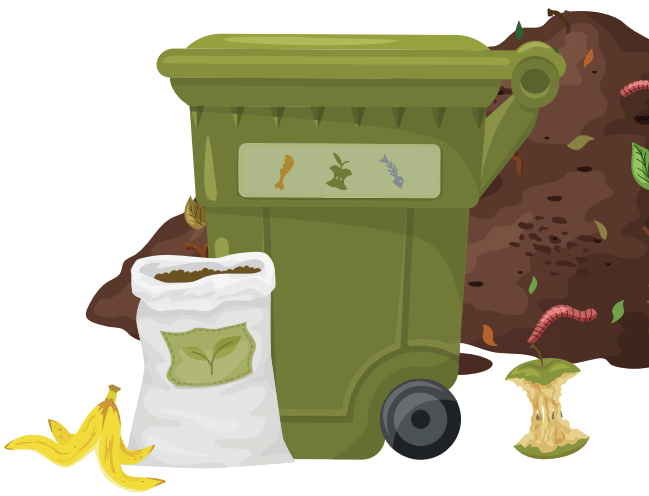Circularising Organics Project
Why we want to keep organic material in use
Keeping organic material (such as food scraps, garden waste, or cropping waste) flowing through a system of reuse means that value is retained and nutrients can be cycled back into the environment and for food production.
If broken down in a landfill, organic materials are wasted and create methane, a potent greenhouse gas. Instead of sending organic materials to landfill or burning them, they can be transformed, for example through composting, vermicomposting or anaerobic digestion, and applied to soils.
 Why we did the research
Why we did the research
Waikato Regional Council is guided by the Waikato Regional Waste Prevention Action Plan 2020-2025, which sets out focus areas and actions to achieve waste prevention and support the development of a circular economy.
The Circularising Organics Project was developed under the Waste Prevention Action Plan to support the development of a robust and resilient organics material system. This can lead to improved soil health, growth of healthy food, reduced greenhouse gas emissions, new jobs and increased mana.
Circularising Organics research available
Waikato Regional Council and a team of researchers created the below resources to help organisations make decisions around organic waste and to create circular organics systems in the Waikato region and beyond.
This includes research on:
- potential of maatauranga Māori to inform decision-making
- information and data to support decision making
- how a network approach to organic material processing could work
- issue of contamination of organic materials
- what role community organisations in the Waikato want to play
- Te Ao Māori perspectives and market opportunities.
Social procurement opportunities in organics material management
This report, prepared for Waikato Regional Council, examines the potential to deliver the region's organic waste needs using a circular economy approach and sustainable procurement practices. Taken together, circular economy and sustainable procurement initiatives can build resilience within both communities and waste management systems. By aligning organic waste systems with the waste hierarchy and incorporating smaller, localised waste processors, regions can reduce emissions, improve soil health, and enhance food security.
Circularising Organics - decision making tool guidance
The focus of this decision making tool guidance is to:
- Provide guidance for organic materials processing.
- Present comprehensive analyses of collections and processing types for various organic feedstocks.
- Discuss the interactions between collection, processing, and market potential of different feedstocks.
- Provide the foundations for a decision-making tool that includes critical question.
Decision Making Tool - matrix for organic materials
The tool supports decision making on what sort of processing options suit the specific organic waste stream you have.
View and use the tool
Project supporters and contributors
Project supporters
Thank you for the financial support for this project, which has been received from the Waste Minimisation Fund, which is administered by the Ministry for the Environment.
The Ministry for the Environment does not necessarily endorse or support the content of the publication in any way.
Thank you also for the financial support received from the Waikato Wellbeing Project.
Project contributors
Thank you to our project contributors:
Tonkin + Taylor
Whetū Consultancy Group
Envision
Sunshine Yates Consulting
The Rubbish Trip



